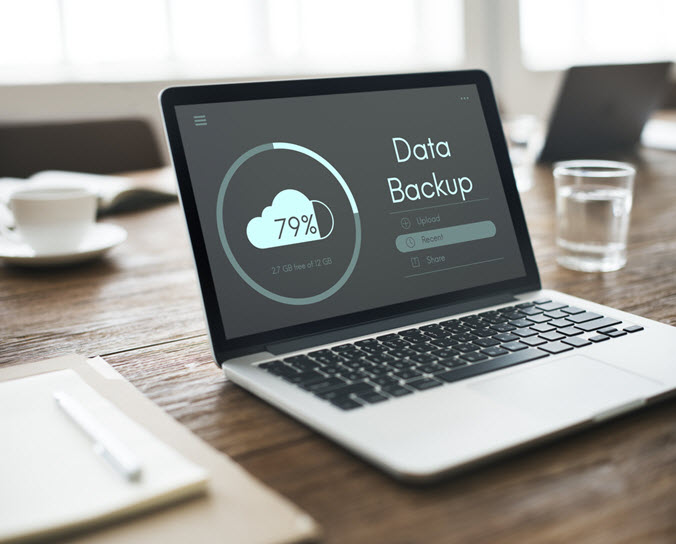
Your data is arguably the most valuable business asset you own. If you really know how to dive deep into its analysis, then you probably recognize just how valuable it is. That means you’ve also realized how important keeping it safe is. Just in case an unforeseen digital disaster should occur, make sure you have a data backup plan available and ready to implement at a moment’s notice.
What Types of Backup Exist?
Any business can back its data in three major ways:
- Locally – If you happen to have a couple of servers lying around, you can use them for data backupsa. Of course, if a natural disaster were to occur, it may take out both your primary and back up servers, making this an ineffective method of backup. This brings us to…
- Off Campus – The more distance you put between your backup and main data, the better it is for you. If you can afford to hire a professional data storage and backup company, that’s great. Though they’re not perfect, they do provide another layer of data security.
- The Cloud – There are hundreds (probably thousands) of cloud-based data storage companies. Everything from Google Drive (with free plans starting at 15 GB of space) to the large AWS servers from Amazon fall in this category.
Smart Backup Tips
Since you know how important it is to back up your data, it’s time to get on with it! Follow these tips for peace of mind when it comes to securing your company’s most sensitive information.
1. Even a flash drive can serve as your backup device.
Just make sure you don’t lose it or leave it lying around where someone can damage or steal the data on it. For smaller amounts of data, this works perfectly. If you don’t have immediate access to your back up servers, don’t wait to back your files up. Accidents are defined by their unpredictability. Keep multiple copies of your most important files/documents and then synchronize them when you’re ready.
2. Choose the data you want to back up.
You would be surprised at the amount of money and space wasted by companies who choose to have every single thing they own backed up. Yes, that may sound like a good idea, but it isn’t always necessary. If there is data you don’t or won’t use, get rid of it.
3. Remember to read the legalese.
While you might want to keep or delete your backup data after some time, make sure you do so in accordance with the law of the land. There are legal requirements that state how long a business can and should retain data. Include that in your back up and storage plan.
4. Always back data up on schedule.
You should always stick to a schedule when backing up data. Don’t back information up in a haphazard manner were someone might drop the ball and forget to do the job. Keep track of the schedule and the data that’s backed up.
5. Encryption is your friend.
While you may use backups as a way of making sure you don’t lose data, what guarantees do you have that they’re stored on your remote servers? How can you make sure that no one will go sniffing through it while it sits there? The answer: encryption. It might cost you a little bit extra, but encryption’s always worth it. Knowing only you can decipher the data is always worth an investment.
6. Don’t forget certain devices.
Remember that people are always on the go. They access the internet using mobile devices, tablets, laptops, even smart TVs and game consoles. When planning data backup for your business, make sure you don’t forget these devices, too.
7. Do random testing.
Going through all the trouble to back your data up and then not being able to restore it could mean you’re wasting your time, money and energy. Always perform random restore tests to see if what you’re storing is actually worth keeping. It will also help you identify any backup errors you may need to fix.
8. Choose your backup software carefully.
There are many back up software packages out there that promise to deliver the best backup solution. Test them, making sure they only back up the changes that have occurred on your server and not the whole thing. The software should take care of the job with minimum intervention from you.
And there you have it. Follow these tips and you’re well on your way to safe data stored on your backup servers.
















